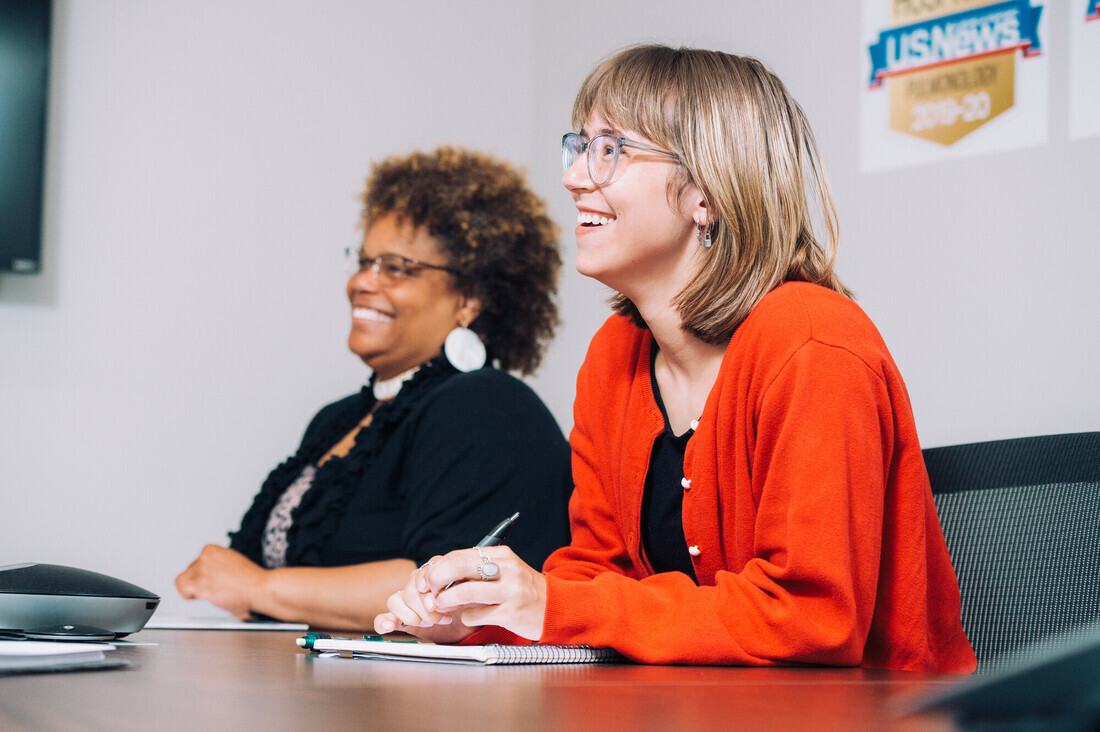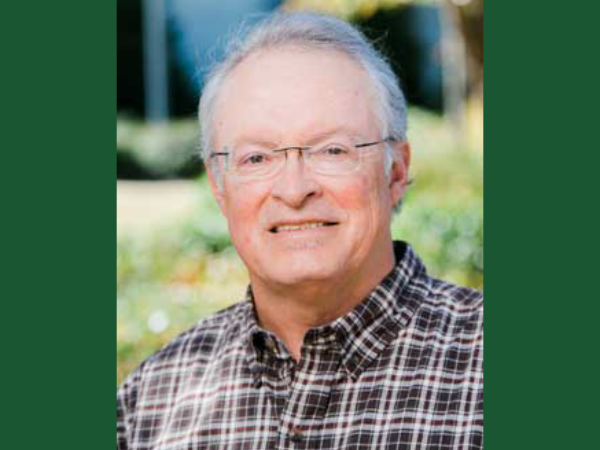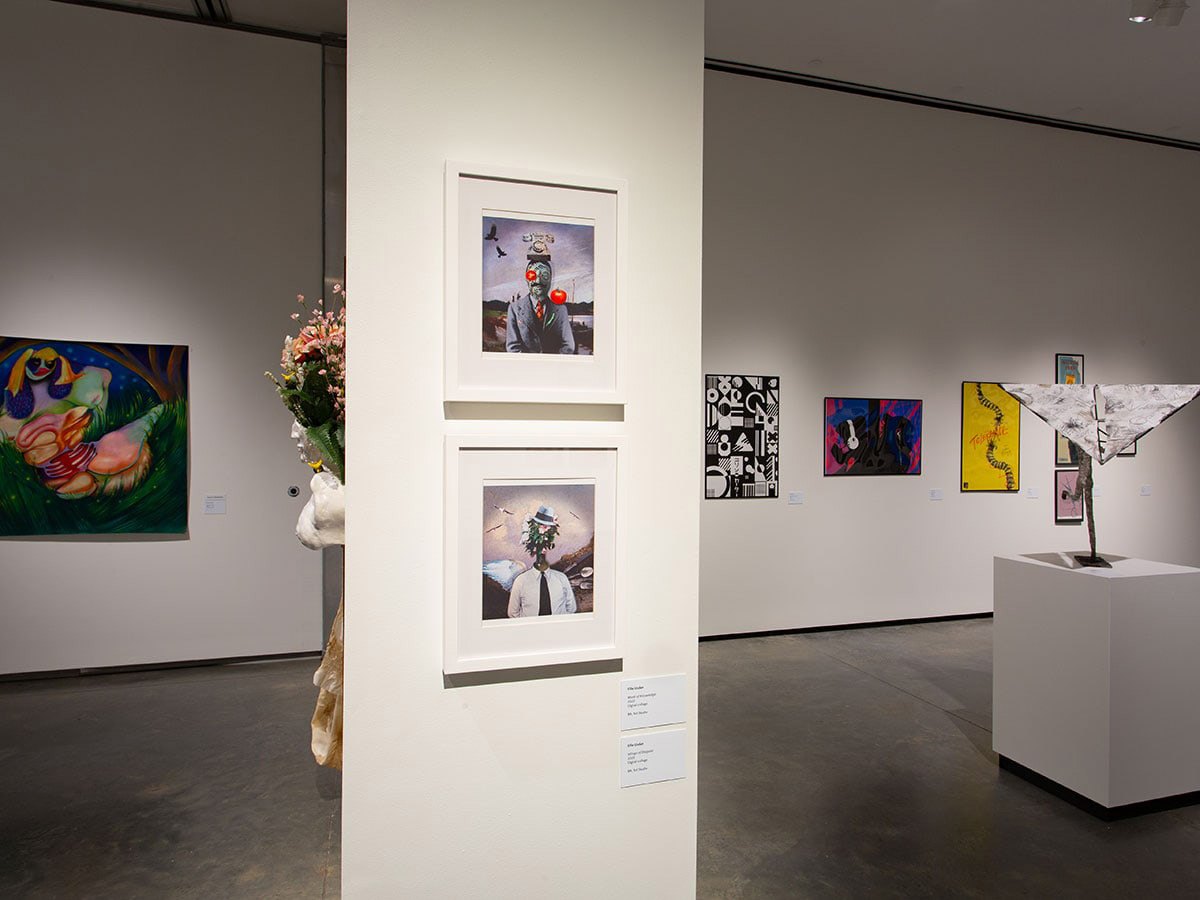
When the University of Alabama at Birmingham’s Department of Social Work began developing a master’s program in 2017, it was visibly obvious that it should have a clinical/medical concentration. All one needed to do was look around the campus (and the city) at the vast number of medical facilities and resources available to students.
As planning continued, department leaders prioritized the clinical/medical focus and made it the sole concentration of the program, eventually leading them to call it the Clinical/Medical Master of Social Work.
“There are about 330 accredited Master of Social Work programs around the country, and in some fundamental ways we’re similar to all of them. What sets us apart is that unique clinical/medical focus,” said program director Colleen Fisher, Ph.D., MSW. “We have a group of faculty focused on different aspects of clinical/medical training. So everybody is working together synergistically to help students develop this particular skillset.
“It is very rare that a program does one thing and that’s it. But UAB has such incredible health and medical facilities, it just makes sense for us to focus on this and take advantage of the rich resources the UAB medical environment has to offer.”
The MSW program taps into those resources with real-world training both in the classroom and out in the field. This includes simulations with actual health professionals during which students take the concepts they have learned and apply them in practice. Students also have a minimum of three semesters of internship opportunities, providing them with more than a year of specialized on-the-job experience before graduation.
“We’re surrounded by all these health and behavioral clinics, and our entire program is designed around social work in this setting,” said Department of Social Work chair Ronald Pitner, Ph.D., MSW. “That is the strength of UAB and Birmingham in general, and our students benefit from that experience.”
Ellie Pappas, a 2020 MSW graduate who currently works as an outpatient therapist at Highlands Community Services in Abingdon, VA., says she benefited significantly from the combination of classroom instruction surrounded by an extensive medical infrastructure.
“There are professors in the program who have decades of clinical experience,” Pappas said. “I took many classes that were directly relevant to my current work as a therapist. I still have the textbooks and sometimes will review things in them.
“But basically how you learn to be a social worker is out in the field, and their field options are fantastic. Mary Jacque Carroll [MSW, assistant professor of field education] really listens to you and helps place you where you want to be placed, so you can get the type of professional experience you need.”
Rashad Hayes was one the first students to graduate from the MSW program, in 2019, shortly after the program was accredited by the Council on Social Work Education. Hayes said he never associated social work with the medical field before learning about UAB’s offering.
“When I thought of social work, I thought of DHR (Department of Human Resources) and working with children, things like that,” said Hayes. “This program opened my eyes to a whole other world I was unaware of. It allowed me to realize I can do this type of work in a hospital or a clinic and make an impact that way. It really shed light on the possibilities of what you can do as a social worker.”
 Hayes currently is a medical social worker in radiation oncology at the O’Neal Comprehensive Cancer Center at UAB. He says his primary role is serving as an advocate for patients in their interactions with doctors and nurses.
Hayes currently is a medical social worker in radiation oncology at the O’Neal Comprehensive Cancer Center at UAB. He says his primary role is serving as an advocate for patients in their interactions with doctors and nurses.
“The doctors and nurses are focused on getting that patient treated physically. I’m looking at all the social determinants of health,” said Hayes. “So I share with them some of the stories they may not know about the patient in order to make sure the patient gets all the care they need. The simulations we did [in the MSW program] gave me the experience that allows me to be comfortable in speaking up when those opportunities present themselves in current clinics.”
Fisher says the MSW program emphasizes the importance of having interprofessional collaboration among different disciplines within the medical field, especially involving social issues such as addiction or homelessness.
“It’s not just about doing clinical social work in a medical place. It’s about working as part of these interprofessional teams and learning how to navigate those dynamics between doctors, nurses, and social workers,” said Fisher. “Increasingly, the medical side is asking for more social work positions in those settings.”
Not only does the MSW program offer that type of training and experience, but it does so with smaller class sizes that provide opportunities for more direct instruction from faculty members. Fisher says a maximum of 50 new students are admitted to the program each fall, a limit that keeps the average class size to around 20 students.
“It’s a more personal approach, which is consistent with clinical care,” said Fisher. “We’re a small, personalized program that gets to take advantage of the vast resource that is UAB.”


